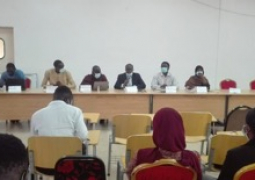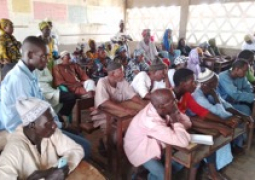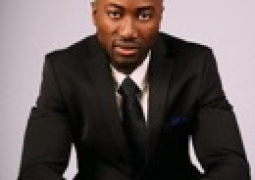The forum held at a local hotel in Senegambia, was organised by Caritas and attended by religious leaders such as imams, pastors as well as officials from Supreme Islamic Council, Christian Council, among a host of others.
Since 2017, CARITAS and Catholic Relief Services have conducted series of sessions geared towards promoting Social Cohesion in The Gambia through the 3Bs/4Ds Methodology.
The 3Bs/4Ds offer a means to bring single-identity and mixed-identity groups together for introspection, dialogue, and joint action.
The 3Bs according to CARITAS, are Binding: this is to reconstruct the person through self-healing and self-transformation. The second B is Bonding, which strengthens relations within identity groups through intra-group transformation processes and the final B is Bridging, which develops trust between two or more identity groups.
The 4Ds include Discover, or simply unearth the gold that nurtures social cohesion; Dream: Envision a shared or desired harmonious future, Design: reflect on conceived and innovative inclusive projects and Deliver: Transform your world by engaging in joint actions.
The 3Bs/4Ds Social Cohesion Methodology aims to contribute to maintaining, reopening, and strengthening communication and encouraging peaceful relationships among individuals, religious, political, ethnic, and diverse groups in The Gambia.
Fr Moses Drammeh, a religious leader, who served as a resource person, said religion is a very strong instrument in a nation but when its constituencies are tempered, it can be destructive.
He therefore reminded religious leaders that they should respect each other’s faith and learn to live in harmony.
“All religions need to be given the respect they deserve and need to be treated equally.”
He recalled the old good days when both Muslims and Christians in the country attend and celebrate each other’s festivities.
This, he said, shows the respect and mutual understanding the people in the two faiths have for each other and humanity at large.
“In our families, we have biological relatives with different faiths but this should not stop us from living together as a family. Despite our religious diversity, we are one people.” he said.
Also speaking, Ousman Jallow said looking at the Gambia, what has happened is what is still happening now.
"History continues to repeat itself but we fail to learn from the past in order to shape our futures.” he said.
Jallow observed that since the first republic up to date, the country has never experienced a smooth transfer of political power from one regime to another and the political leaders always fail to have a dialogue with the people.
Read Other Articles In National News
AESSA expresses concern over government's action at Monkey Park
Nov 3, 2022, 10:06 AM




